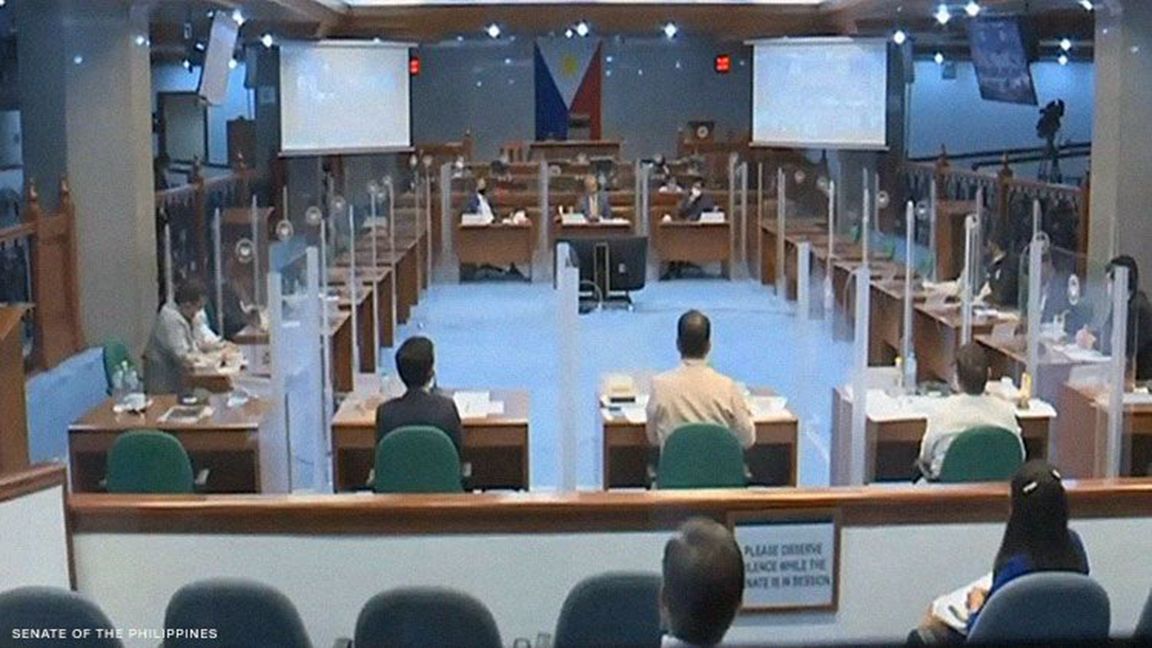With only a few days to deliberate on the Regional Comprehensive Economic Partnership and a lack of push from Malacanang, the Senate is not keen on ratifying this treaty that took effect last January 1.
Despite the hard push by business and economic managers for the Regional Comprehensive Economic Partnership with ASEAN, the Senate is not keen on ratifying this treaty, which took effect on January 1.
Even when the session resumes after the May election, legislators question the lack of support from Malacanang.
“The RCEP will be difficult to pass if the Executive branch doesn’t show full support for it,” Senator Aquilino Martin L. Pimentel III, who heads the Foreign Affairs Committee,. If the Executive branch wants RCEP then they should show it,” told Business World on Tuesday.
Senate President Vicente C. Sotto III, a vice-presidential aspirantearlier said that if the decision was based on previous deliberations, the RCEP would likely be rejected by the Senate.
The Senate failed to give its concurrence to the RCEP deal before it adjourned the session on Feb. 3 for the election break. President Rodrigo R. Duterte ratified the RCEP on Sept. 2, 2021.
Sotto had pointed out that the Senate only has six days to discuss the RCEP when it resumes session on May 23. Congress is scheduled to adjourn sine die on June 3.
“Six days for something that requires a lot of explanation, it’s unlikely,” he said.
If the current Senate fails to act on the RCEP, the new president can resubmit it to the Senate when the 19th Congress opens in July.
Mega-trade deal
The RCEP, a mega-trade deal involving Australia, China, Japan, South Korea, New Zealand and the 10 members of the Association of Southeast Asian Nations (ASEAN), namely Brunei, Cambodia, Indonesia, Laos, Malaysia, Myanmar, the Philippines, Singapore, Thailand and Vietnam, was signed in November 2020. It has been in force in 11 countries since Jan. 1.
Pimentel said he and other senators agreed with Sotto’s sentiment, saying that they need more convincing that the country needs RCEP.
“But it should not only be the chairman of the Senate Committee on Foreign Relations who should do the convincing. The branch of the government which negotiated this deal and which referred it to the Senate for concurrence should also do its share of convincing the senators,” he said.
Trade Assistant Secretary Allan B. Gepty said many business organizations, foreign chambers, and industry associations have repeatedly expressed support for the mega-trade deal.
“If the Philippines will not participate or delay its participation in RCEP, then it will give a wrong signal to investors and trading partners,” Gepty said.
Competitors to enjoy advantages under RCEP
“In addition, our businesses, exporters, and investors will be put to a disadvantage as their competitors in the region will be enjoying certain advantages under RCEP such as wider sourcing of raw materials and intermediate goods and enhanced market access which they cannot avail under existing agreements,” he added.
Without participation in the RCEP, Gepty said that trade and investments would be diverted from the Philippines, hurting local businesses and the economy.
In response to the issues raised by the agriculture stakeholders, Gepty said they have conducted consultations with the sector since 2013.
He said it is incorrect to assume that RCEP will liberalize the agriculture sector since, under existing free trade agreements (FTAs), most products have already been liberalized except for highly sensitive or sensitive products.
Under RCEP, Gepty said the country only offered 33 agricultural tariff lines for further liberalization or improvement, specifically for Australia, New Zealand, China, and South Korea compared with the existing ASEAN+1 FTAs. “This is only equivalent to 1.9% of the total agricultural tariff lines,” he added.
More agricultural tariff lines excluded
“In fact, for RCEP more agricultural tariff lines were excluded from tariff commitments vis-à-vis ASEAN Trade in Goods Agreement and the ASEAN+1 FTAs,” he said.
On safety nets, Gepty said the agreement has a transitional safeguard, allowing parties to suspend further reduction of customs duties or increase customs duties following a surge in imports caused by commitments under the treaty.
He said RCEP is not only about goods but also investments, services, e-commerce, competition, and intellectual property.
“With this agreement, we provide a more stable and conducive business environment. This will complement our current policy direction as well as economic reforms,”Gepty said.
Tags: #RCEP, #mega-tradedeals, #Senatenotkeen, #notjustgoodsbutalsoinvestments, #trade
